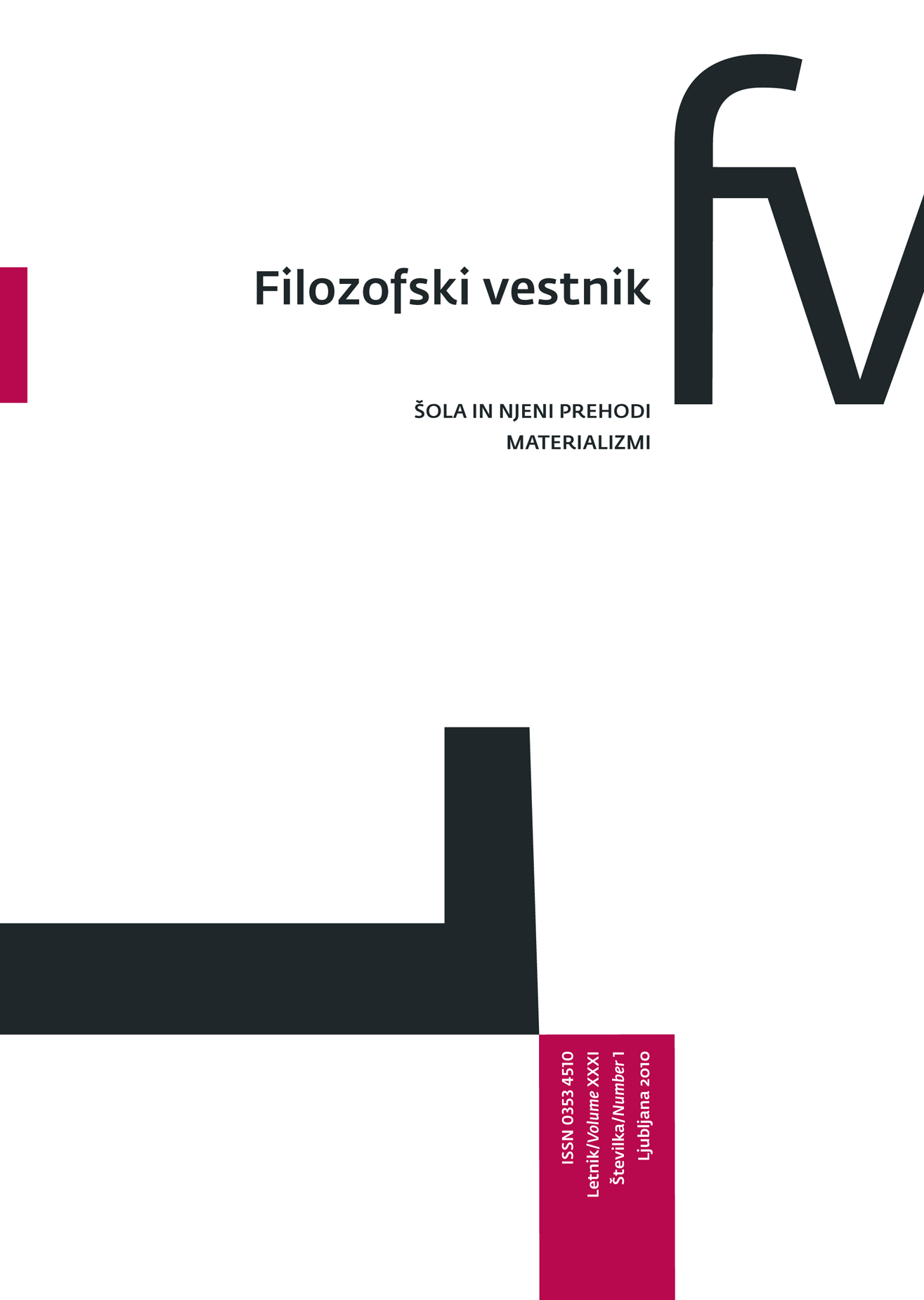Gledališče brez gledalcev
Ključne besede:
psihoanaliza, Lacan, objekt-pogled, vid, želja, skopični užitekPovzetek
Je podoba substancialni in vztrajni objekt realnosti? Objekt, ki kliče po subjektu, ki bi se mu moral zgolj prilagoditi? Tradicionalne teorije vida temeljijo na ločnici med aktivnim subjektom vida (percipiens) in pasivnim objektom (perceptum): resnica je samo v ujemanju prvega z drugim. Vid je kot puščica, ki poteka od subjekta k objektu, brez realne notranje konsistence. Kakšno je psihoanalitično razmerje do te zastavitve? Medtem ko je v imaginarnem (npr. v Lacanovi teoriji zrcalnega stadija) podoba sredstvo za iluzijo lažnega Enega, je simbolna podoba obravnavana kot označevalec, ki ga je treba odstaviti, da bi razkrili označenec v ozadju. Psihoanaliza je šele s teorijo objekta-pogleda (v Lacanovem Seminarju XI) dejansko zmožna zastaviti problem vida v točno določenih okvirjih. Objekt-pogled ni niti na strani subjekta niti na strani objekta, temveč napravi prostor za netranzitivno razsežnost vida, ki ni niti aktivna niti pasivna. Razsežnost vida, ki dejanko zastopa želečo razsežnost samega prostora.Prenosi
Podatki o prenosih še niso na voljo.
Prenosi
Objavljeno
2016-03-12
Kako citirati
Bianchi, P. (2016). Gledališče brez gledalcev. Filozofski Vestnik, 31(1). Pridobljeno od https://ojs.zrc-sazu.si/filozofski-vestnik/article/view/4483
Številka
Rubrike
Materializmi
Licenca
Avtorji jamčijo, da je delo njihova avtorska stvaritev, da v njem niso kršene avtorske pravice tretjih oseb ali kake druge pravice. V primeru zahtevkov tretjih oseb se avtorji zavezujejo, da bodo varovali interese založnika ter da bodo povrnili morebitno škodo.
Podrobneje v rubriki: Prispevki





